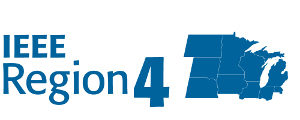Officer Training 2024 (part 2 of 7)
Virtual: https://events.vtools.ieee.org/m/382564In 2024 we will offer ‘Officer Training’ to our ‘newly’ elected AND veteran officers and volunteers; as well as any IEEE member, at any grade level or position. Our wish is to help all gain a fuller awareness of the communication and management skills used within the IEEE, how they function and how to employ them both as IEEE officers, and in your everyday work and life. These are referred to as ‘soft skills’ in that they are not based on the physical principles we all learned as we worked toward our engineering degrees. They are psychological, organizational, interpersonal and their training requires that they be ‘learned’ in two associated ways.The first part is an appreciation of the principles and techniques involved. That is usually part of a class or study covering the basics (theory) of the method. That part we intend to offer in the form of ‘on-line’ classes and reference study material.The second part requires putting the ‘theory’ into active practice. We often liken this to learning a sport, such as playing a game of tennis. No amount of ‘book study’ can teach you how it feels to swing a racket, or how to know when your swing connects perfectly, and the ball goes exactly where you intended. Those elements of a skill only come with practice!Classes:As an introduction to the ‘theory’ portion of these skills, we will offer a set of virtual classes supported by study materials available through the (https://r4.ieee.org/sem/) and the (https://ieee.learningpool.com/) The virtual classes will begin in the 2nd week of January 2024 and conclude end of February of that year. Each class will be conducted via WebEx/Zoom as an overview’ of the topic ‘de jour’ and a discussion or Q&A session to answer questions and clarify issues. (See the agenda below:)Note: Space for these classes is not like outer space, it is limited, so you must register to receive the necessary codes and passwords to attend.Co-sponsored by: Kimball WilliamsSpeaker(s): Sharan KalwaniAgenda: Day Date General Topic/Theme Primary Focus Areas covered DurationSat 1/13/2024 vTools Communications Volunteer tools/resources for the Primary Teams 2 HrsSat 1/20/2024 Collabratec Communications Primary & Extended Team 2 HrsSat 1/27/2024 Leadership Chair Chair Duties / Responsibilities 2 HrsSat 2/3/2024 Leadership V-Chair Vice-Chair Duties & Responsibilities 2 HrsSat 2/10/2024 Leadership Secretary Secretary Duties & Responsibilities 2 HrsSat 2/17/2024 Leadership Treasurer Treasurer Duties & Responsibilities 2 HrsSat 2/24/2024 Leadership Extended Team IEEE code of Ethics (updated) 2 HrsVirtual: https://events.vtools.ieee.org/m/382564

